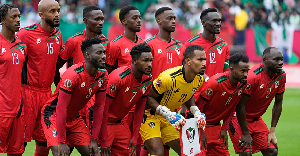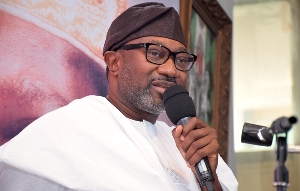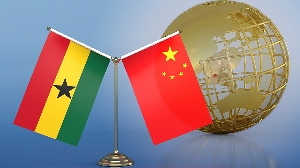Accra, May 3, GNA - Government on Thursday assured media practitioners that it would not do anything that would curtail the boundaries of free speech or impede the progress and development of journalism.
Mrs Oboshie Sai Cofie, Deputy Minister of Information and National Orientation, said government remained strongly rooted in the mindset which led to the repeal of the criminal libel law and would continue to work to strengthen the supporting institutions whilst protecting the independence of the media.
"Government reiterates its firm and unrelenting commitment to the freedom of the press as enshrined in our constitution and re-affirms its concern for the continued safety and sanctity of the media," she said at a symposium and flag-raising ceremony in commemoration of World Press Freedom Day at the Ghana International Press Centre in Accra. The day was under a global theme: "Press Freedom, Safety of Journalists and Impunity" and a local theme, "Fifty years of Public Service Broadcasting and Governance: The Challenges". Mrs Cofie said government would continue to work to support the development of journalism within a free and democratic dispensation since it was proud about the strides that media practitioners had attained so far.
She said with the liberalized airwaves anybody could write or call into a radio station under the guise of sharing their views on issues of tropical concern, no matter how far fetched the matter was. "The fact that they are able to input freely to discussions on the airwaves, without fear of being incarcerated or harassed, has helped to deepen democratic governance and given true meaning to freedom of expression in the country," she said.
Mrs Cofie said it was for the abuse by some people of the freedoms being enjoyed by the media that a number of civil society group were calling for the institution of a broadcasting law to infuse sanity in the airwaves.
She said the idea of a broadcasting law should not be seen as one that would emasculate the media or broadcasters but rather as one that would help to inject the right discipline and high professional standards required for a leading nation in Africa like Ghana. "The Ministry of Information and National Orientation is studying the inputs being made for the passage of such a law and after due consultation with the relevant bodies and adequate public debate, will give its full backing to its passage to help provide this critical safety net for the broadcasting business," she said. Mr Ransford Tetteh, President of the Ghana Journalists Association, in a welcoming address registered the GJA's protest against acts and actions that created an unsafe environment for media professionals in their line of duty.
Citing an assault on two TV 3 Network journalists in their line of duty recently at Akuapim South District Assembly where they tried to get the assembly's comment on the unsanitary conditions there and the murder of Mr Samuel Ennin on February 9, he urged the global community as well as the Ghanaian society to do more to discourage the violence that sections of society were perpetrating against the media. World Press Freedom Day, Mr Tetteh said, provided all with an opportunity to honour the various sacrifices around the world made for freedom of the press and also to remind governments and their people of their duty to respect and uphold the right to freedom of expression that was enshrined under Article 19 of the Universal Declaration of Human Rights.
He said Ghana's golden jubilee edition of World Press Freedom Day was a very special opportunity for soul searching. "After 50 years of independence we have the opportunity to evaluate the performance of the media and to chart the course that we all consider to be the most professional and relevant to our democratic development."
Mr Tetteh said the GJA decided to use the day to examine the state of Ghana's broadcasting industry, which was believed to have a critical role in the nation's governance and development. He said GJA decided to focus on public service broadcasting since it believed it was the least developing segment in the broadcasting sector.
"We believe as a country, we need to come to terms with the best practices elsewhere in the world in the broadcasting industry and ensure that we adopt measures that ensure self-regulation but still promote the freedom and independence of the various types and forms of media in conformity with our constitution," Mr Tetteh said. Mr Yaw Owusu-Addo, Acting Director General, Ghana Broadcasting Corporation, said there was no public broadcasting in Ghana currently and that what was available could best be described as a state or a national station.
In a paper: "The State of Public Service broadcasting - The Way Forward" he said a true public broadcaster should not have any profit motive. Neither should it be controlled by any particular interest but should seek to educate, entertain and inform based on the interest of its listening public.
He therefore called for public support if the national broadcasting station was to provide a public service in the face of modern competition.
Major (Rtd) John R. K. Tandoh, Acting Director General, National Communication Authority, said 166 FM radio stations had so far been given authorization to operate and out of this 128 were operating.
General News of Thursday, 3 May 2007
Source: GNA












